A gallery wall can completely transform your living room. It is a way to bring personality, color and art into your space, turning a simple wall into a captivating focal point. If you want to showcase family photos, artwork, or a mix of both, a gallery wall allows you to express your style and create a space that truly feels like home. Plus, it’s a great way to fill those large, empty walls that might otherwise feel a bit dull.
Getting Started: Planning Your Gallery Wall
Before you start hanging frames, it’s essential to plan out your gallery wall. This will help you create a cohesive and balanced look that enhances your living room.
Choosing a Wall
First, decide which wall in your living room will be the perfect canvas for your gallery. Typically, the best wall is one that naturally draws the eye, such as the wall behind your sofa, above a console table, or even around your TV.
Consider the size of the wall. A large wall gives you the freedom to be bold and expansive with your gallery, while a smaller wall may require a more focused and compact arrangement. Also, think about the amount of light the wall receives, as you will want your artwork to be well-lit but not exposed to direct sunlight that could cause fading.
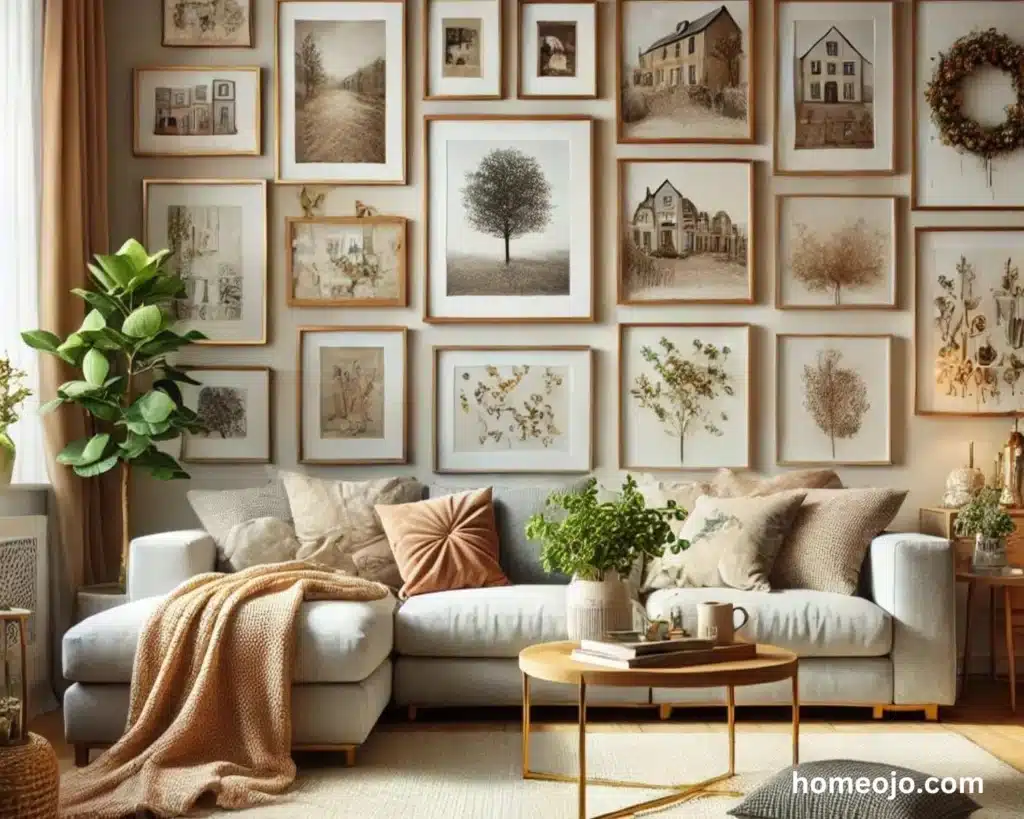
Selecting Your Artwork
The artwork is the heart of your gallery wall, so choose pieces that resonate with you. You can mix and match different types of art, such as photographs, paintings, prints, or even three-dimensional objects like small sculptures or decorative plates.
If you’re not sure where to start, consider a theme. This could be based on color, subject matter, or even a particular style of art. For example, you might opt for a black-and-white photo theme, a collection of botanical prints, or a mix of abstract art and family photos.
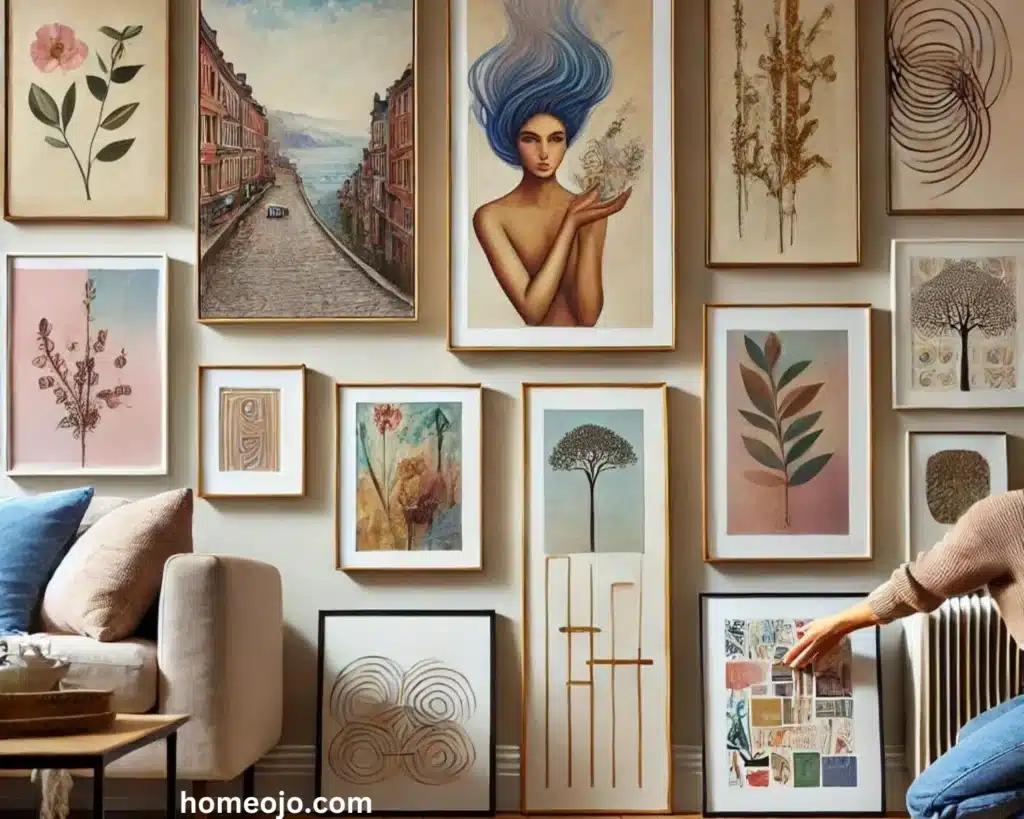
Creating a Layout
Once you’ve selected your wall and artwork, it is time to plan the layout. This step is crucial for ensuring your gallery wall looks intentional and well-balanced.
Laying Out on the Floor
A great way to start is by laying out all your frames on the floor. This allows you to play around with different arrangements without committing to holes in the wall. Move the frames around until you find a layout that feels right. Consider mixing different sizes and orientations of frames for a dynamic look.
To create balance, start with a centerpiece, like a larger frame or your favorite piece of art and build out from there. Keep in mind that symmetry can work well, but so can a more freeform, organic arrangement. The key is to ensure that the layout feels balanced, with no area of the wall looking too heavy or too sparse.
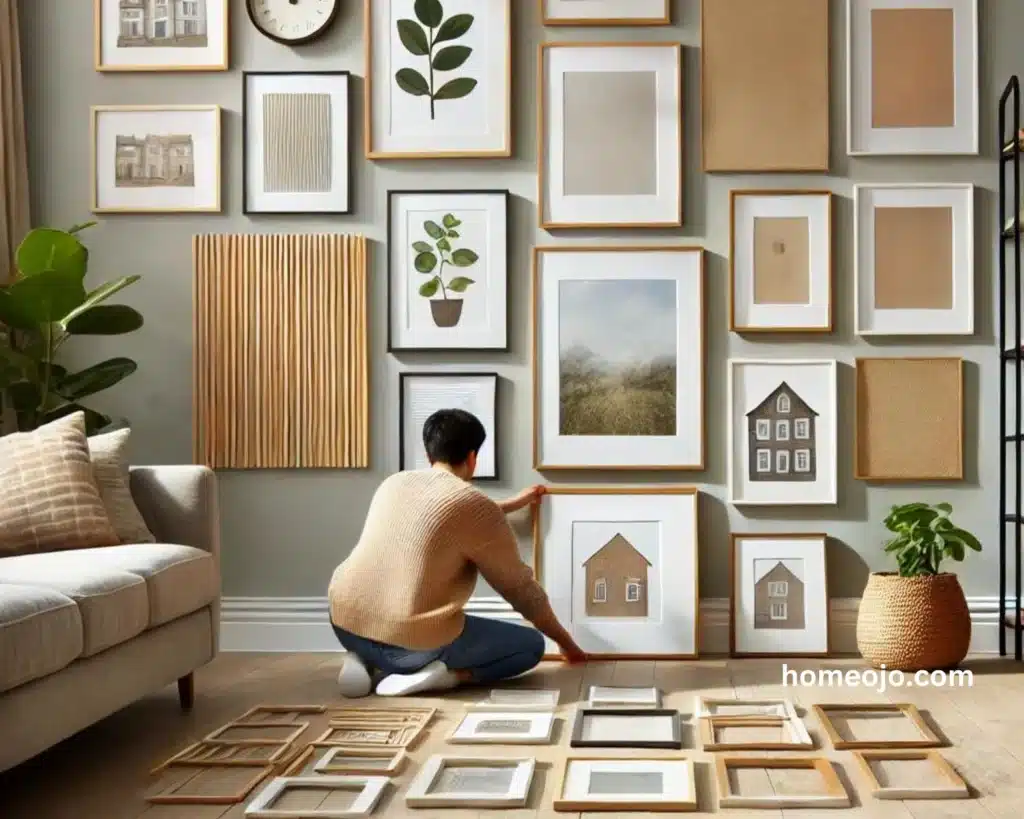
Using Paper Templates
If you’re nervous about getting the spacing right, try using paper templates. Cut out pieces of paper to match the size of each frame, then tape them to the wall in your desired layout. This allows you to visualize the final result and make adjustments before you start hammering nails.
You can also use painter’s tape to mark the corners of each frame. This way, you know exactly where to place each nail or picture hanger.
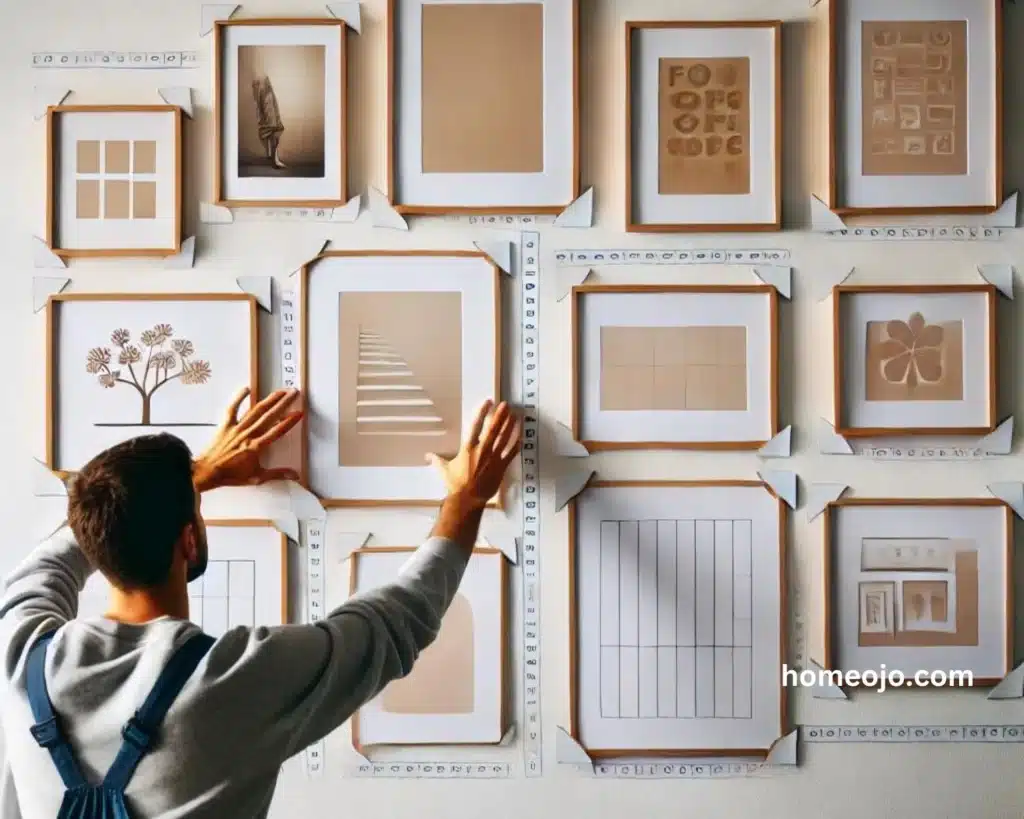
Hanging Your Frames
Now that you have your layout planned, it’s time to start hanging your frames. This part can be a bit tricky, but with a little patience, you’ll have your gallery wall up in no time.
Tools You’ll Need
Gather the necessary tools before you start. You’ll need a hammer, nails, a level, a tape measure and picture hangers. If you’re hanging particularly heavy frames, consider using wall anchors for extra support.
Make sure to have a pencil on hand to mark where your nails or hangers will go. And don’t forget to have a small step stool or ladder if you’re working with a taller wall.
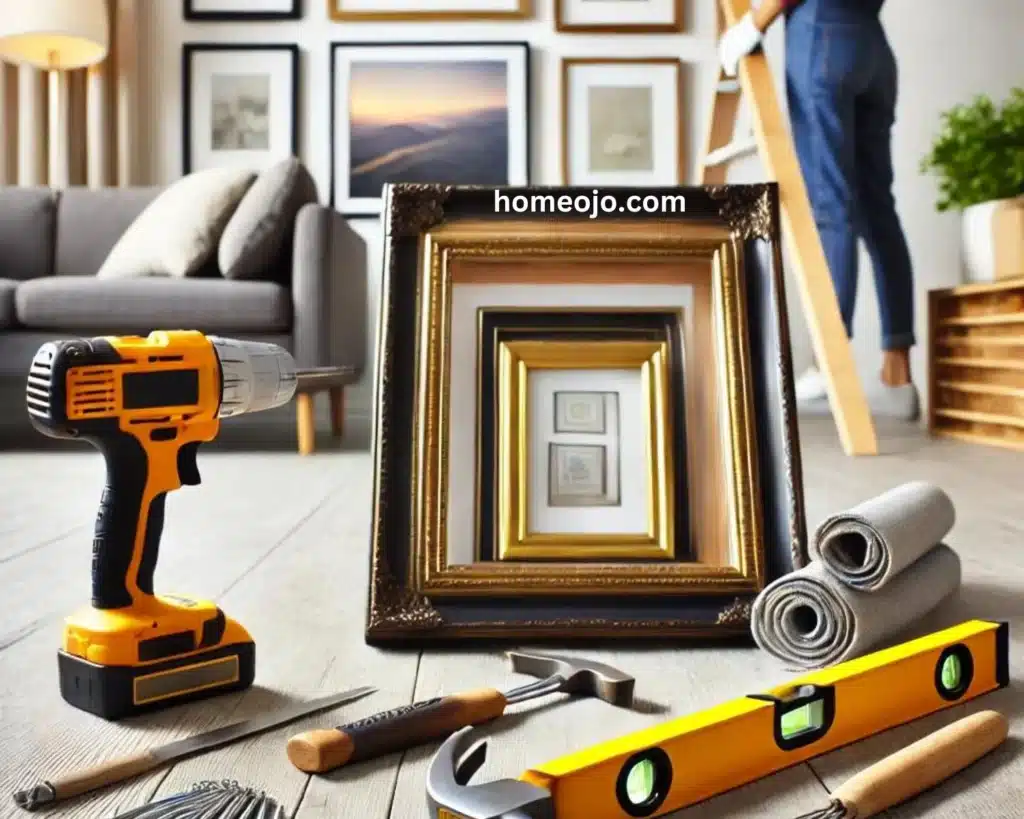
Starting with the Centerpiece
Begin by hanging your centerpiece, the frame that will serve as the anchor for the rest of the gallery wall. This could be the largest piece or simply the one you want to draw the most attention to. Use your level to make sure it’s straight.
From there, work your way outwards, hanging the next closest frames on either side and so on. Keep checking the level and measuring the distance between frames as you go to ensure everything stays aligned and balanced.

Adjusting as Needed
Even with careful planning, sometimes things don’t look quite right once they’re on the wall. Don’t be afraid to make adjustments. If a frame seems out of place or the spacing feels off, it’s better to fix it now than to live with something that doesn’t quite work.
If you need to, you can fill in any unwanted nail holes with a bit of spackle and touch up the paint. It’s all part of the process!
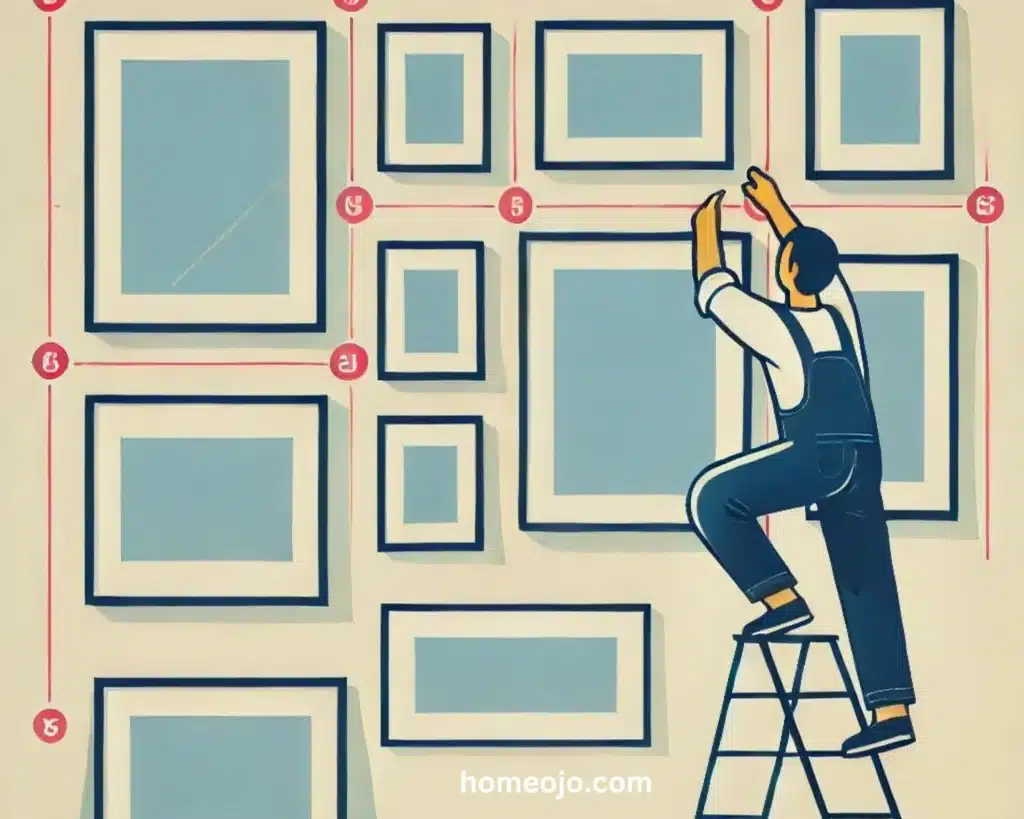
Personalizing Your Gallery Wall
One of the best parts of a wall is how personal it can be. It’s a reflection of your tastes, your memories, and your style. Here are a few ideas for adding personal touches to your wall.
Mixing Photos and Art
Consider combining personal photos with artwork. This mix can make your wall feel more dynamic and meaningful. For example, you might frame a favorite family photo alongside a piece of abstract art or a print of your favorite quote.
You can also include other personal items like a framed letter, a pressed flower, or a small souvenir from a memorable trip. These items add layers of meaning to your wall and make it truly unique.
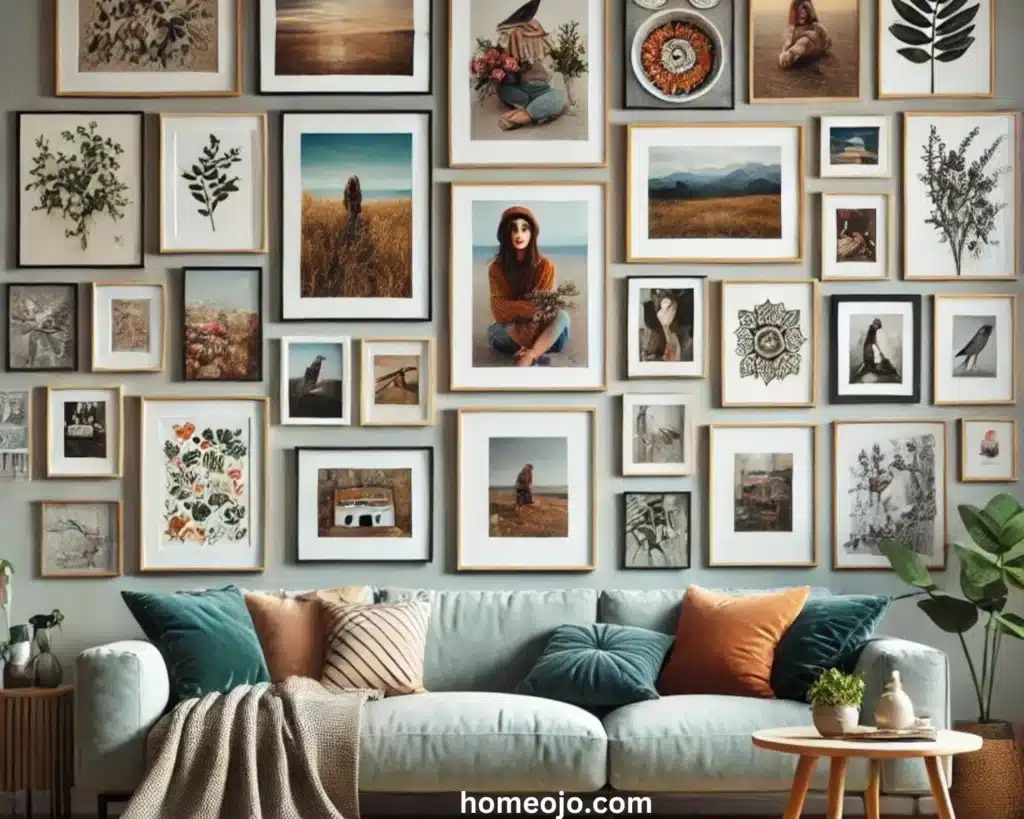
Using Unique Frames
Frames are an important part of the gallery wall’s overall look. Don’t be afraid to mix different styles and colors of frames. A mix of wooden, metal and painted frames can add visual interest and keep the gallery wall from looking too uniform.
If you’re going for a more cohesive look, choose frames that are the same color but vary in texture or material. For example, you might choose all black frames, but some could be glossy while others are matte.
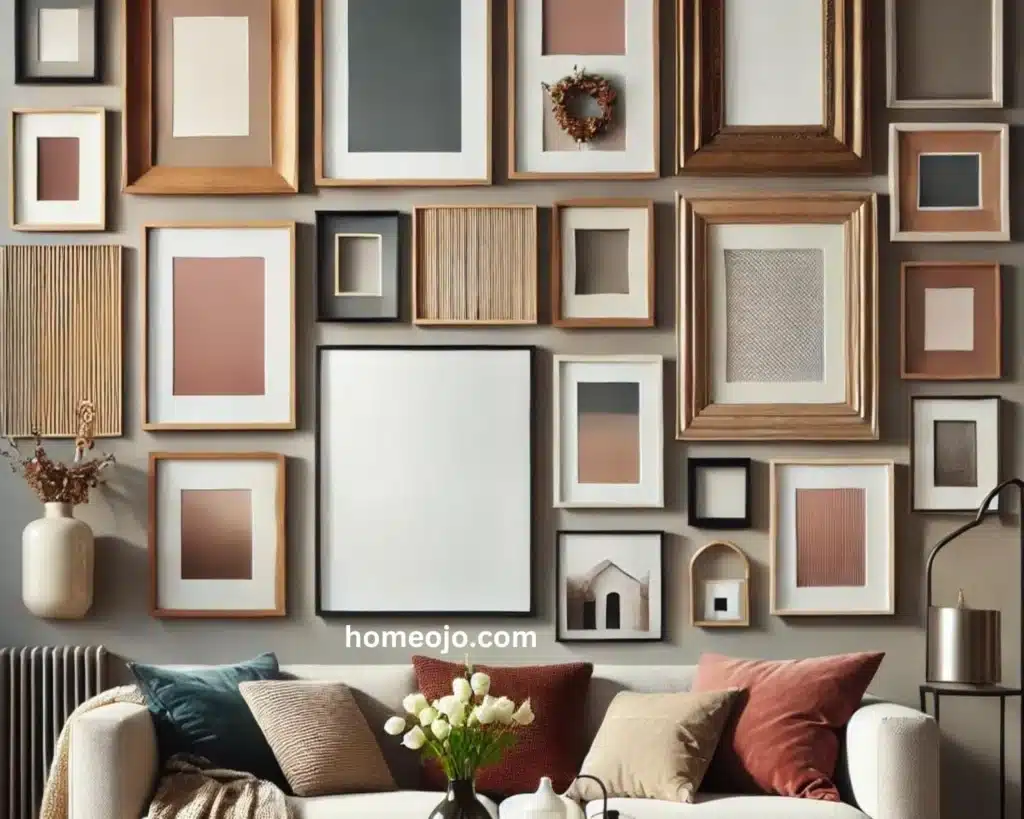
Adding the Finishing Touches
Once all your frames are up, step back and take a look. Does everything feel balanced? Is there a good mix of colors, textures and sizes? If everything looks good, it’s time to add the finishing touches.
Incorporating Lighting
Lighting can enhance your gallery wall and make it stand out even more. Consider adding a picture light above the gallery wall or using directional spotlights to highlight specific pieces. If you want a softer look, string lights or fairy lights can add a warm glow to the entire wall.
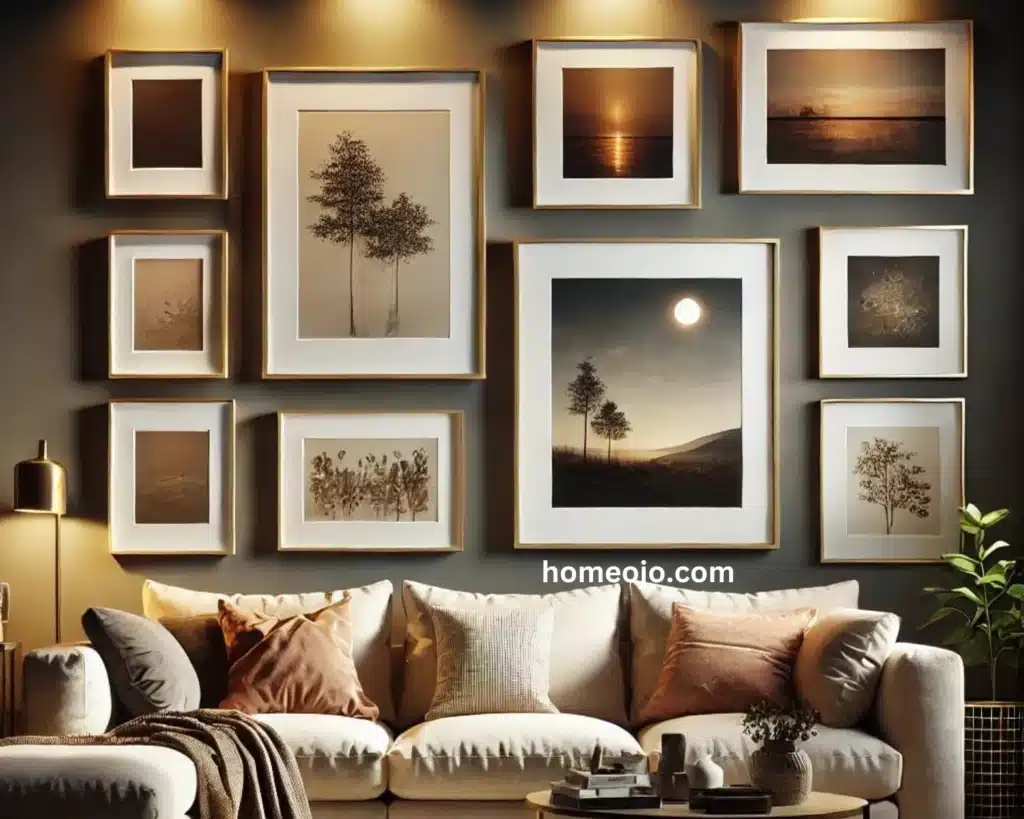
Accessorizing the Space
To complete the look, consider accessorizing the space around your gallery wall. This could include adding a stylish console table underneath, placing a few decorative objects on nearby shelves, or even adding a cozy armchair that invites you to sit and enjoy the view.
These little details can help tie the gallery wall into the rest of your living room and create a cohesive, polished look.
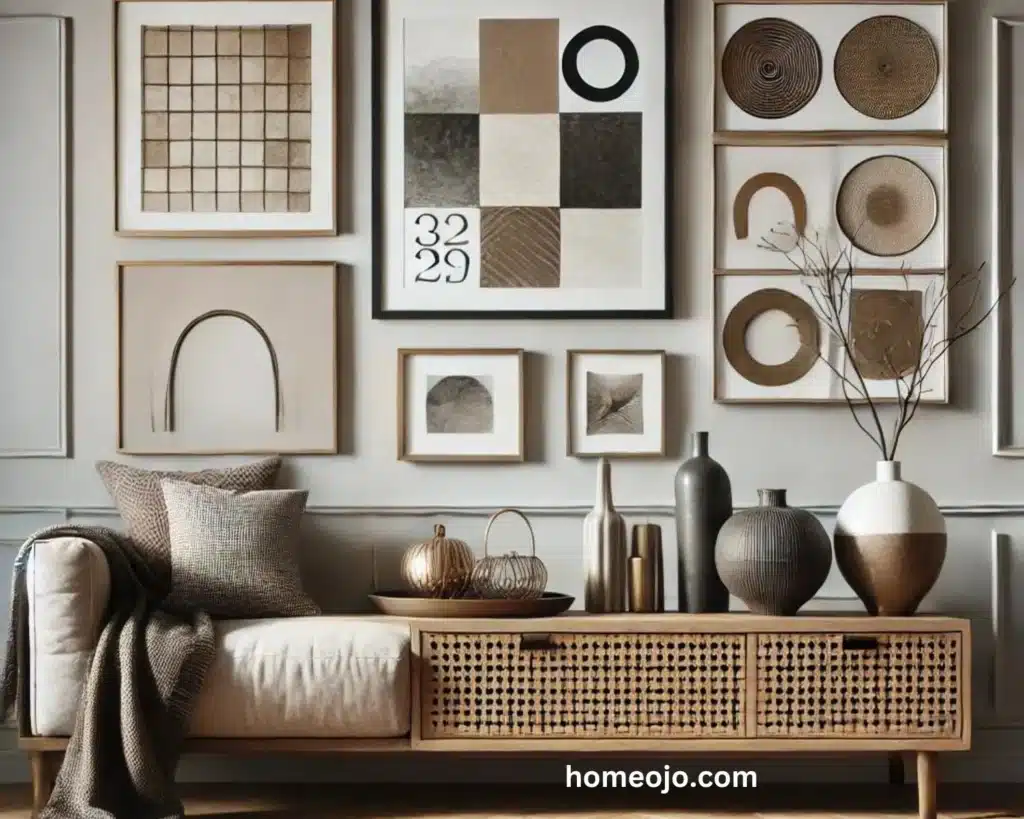
Maintaining Your Gallery Wall
A gallery wall isn’t a set-it-and-forget-it project. Over time, you might want to update the art or photos, especially if your tastes change or you have new memories to showcase. Don’t be afraid to switch out pieces, rearrange the layout, or even add new frames as your collection grows.
To keep everything looking fresh, make sure to dust the frames regularly and check that everything is still securely hung. If you notice any frames starting to tilt, take a moment to straighten them up.
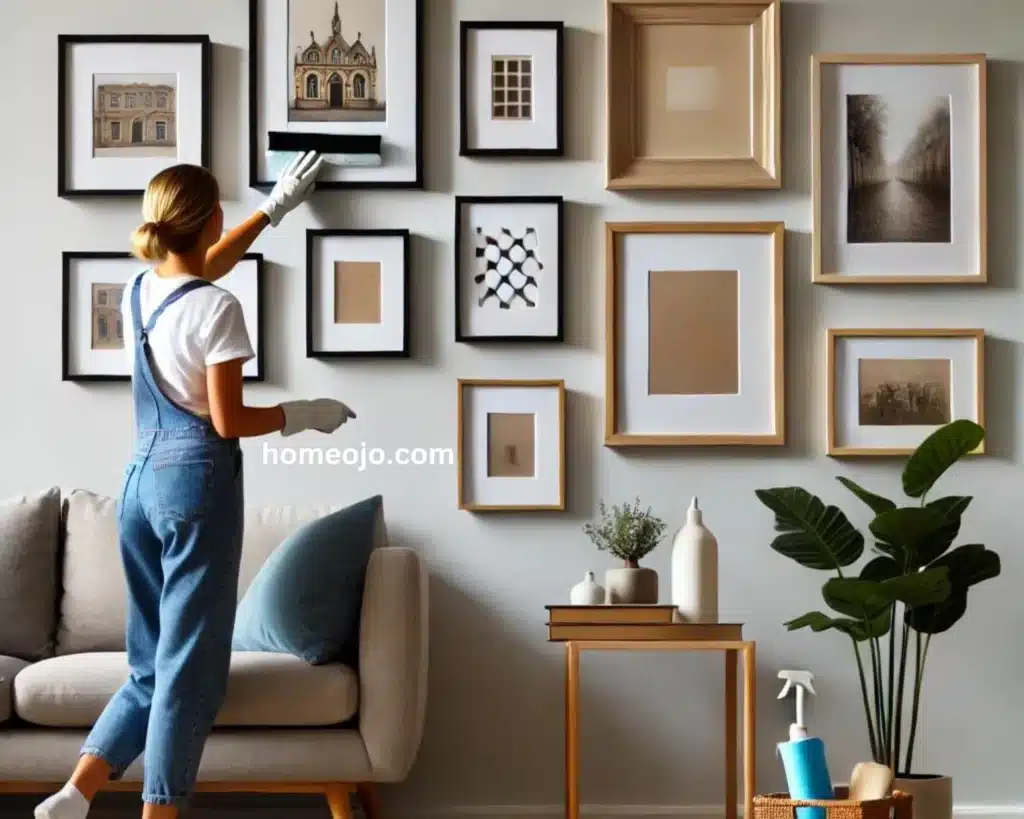
FAQs
What is a gallery wall?
A gallery wall is a collection of framed art, photos and other decor items arranged together on a wall.
How do I start a gallery wall?
Start by selecting a wall, choosing your artwork and planning the layout before hanging the frames.
What type of frames should I use?
You can mix different styles and colors of frames or use matching frames for a cohesive look.
How do I keep my gallery wall balanced?
Begin with a centerpiece and arrange the frames outward, adjusting as needed to maintain balance.
Can I mix photos and artwork?
Yes, mixing photos and artwork can create a dynamic and personal wall.
How do I maintain my gallery wall?
Regularly dust the frames and update the art or photos to keep the display fresh.
As I’ve found
It was fun and satisfying to put together my gallery wall. While i was doing it’s quite fun to choose my best pictures, art and then put them together in a way that felt personal and important to me. It took a while to get the plan just right, but it was worth it in the end. Now, every time I walk into my living room, I feel proud to see how well the art and memories are spread out. It really changed the room and made it feel more like home.
Conclusion: Enjoying Your Gallery Wall
Creating a gallery wall in your living room is a fun and rewarding project that allows you to express your creativity and personalize your space. Whether you’re showcasing art, family photos, or a mix of both, a gallery wall can make your living room feel more inviting and uniquely yours. With careful planning, the right tools and a bit of patience, you’ll have a beautiful wall that you’ll love looking at every day.


